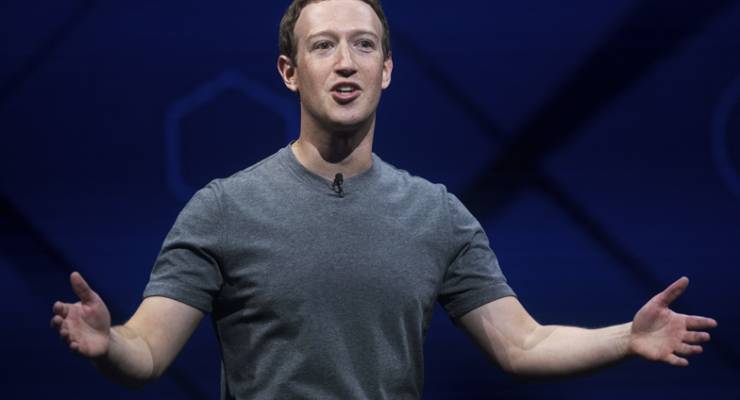
From freight to fraught
For a little while, GlobeLink was the hottest concept in South Australia — an ambitious economy supercharging strategy which was part of then-opposition leader Steven Marshall’s promise for SA ahead of the last state election.
The centrepiece of this “generational upgrade to SA’s road and rail network” was a 24-hour freight airport and distribution hub in Monarto. This multi-billion investment in the local economy was launched with great excitement in The Sunday Mail, complete with sexy concept art suggesting the state was actually building a futuristic spaceport.
“I have a plan that will reshape the SA landscape — literally!” Marshall said in the accompanying promo video. He promised that it would not only create jobs, but was also “about making your trip to work shorter and safer, it’s about reducing the bushfire risk in the Adelaide Hills, it’s about removing trucks from busy roads and school crossings, it’s about making our state shine!”
Yet mentions of GlobeLink and its myriad game-changing solutions abruptly dried up once Marshall actually became premier, aside from vague mutterings that it was subject to a cost-benefit analysis.
KPMG has now completed said analysis and found that no, the project is not going to go forward in any form because it made no sense at all, and also because South Australia is a promise wasteland where dreams go to die.
That particular announcement didn’t get quite the same splashy treatment in the media. It was instead quietly dropped on the departmental website on Monday, the Australia Day public holiday.
Still, we look forward to its reappearance in 2022, assuming that Liberal-held Adelaide Hills and south-eastern seats are under threat again.
Facebook: one. Fake news: infinity
The problem of fake news on Facebook remains exceedingly difficult to solve, especially since the platform directly profits from pages paying to spread their made-up messaging and that the politicians who could legislate against it are among its largest customers.
So it’s both surprising and amazing that Facebook has taken action against The BL (Beauty of Life), a media outlet which looks like a weird mix of new-age guffery and pro-Trump editorialising.
This wasn’t just Goop for cranks. The venerable fact-checking website Snopes published an investigation into The BL in October 2019, and concluded that the site was using thousands of fake accounts and groups in what appeared to be a coordinated propaganda operation. More specifically, they concluded that The BL was operating as a mouthpiece for Trump-supporting misinformation network The Epoch Times (which Facebook had already banned from buying ads for that exact reason).
It took three months for any action to occur, but now Facebook has trumpeted its success saying it has “removed 610 accounts, 89 Facebook pages, 156 groups and 72 Instagram accounts” connected with The BL after an “internal investigation”, with zero mention of Snopes.
So rejoice, lovers of facts: one down, the entire rest of Facebook to go!
Backpackers get burned
What happens if you’re a 482 visa holder sponsored by someone who lost their business in the fires? What happens if you’re a backpacker working in regional Australia and had to be evacuated from your fruit-picking gig? Short answer: that’s your problem, Johnny Visitor.
Home Affairs puts very strict conditions on temporary visa holders. Working holiday maker program participants (417 and 464 visas) must present documentation showing they have done the necessary time in the prescribed industries of fruit picking, fishing, tree felling, mining and construction — which happen to largely be in places hit hardest by the drought and bushfires.
Australia does a brisk business in temporary visas. Our fees and waiting times are far greater than most countries, despite having many seasonal industries which absolutely rely on temporary workers.
Indeed, regional areas hit by the fires are going to heavily rely on on 417 and 464 visa holders who are up for doing some town rebuilding.
Unfortunately those visa holders may not be around. Home Affairs’ last major visa announcement last November was all about how numbers were being slashed.








Crikey is committed to hosting lively discussions. Help us keep the conversation useful, interesting and welcoming. We aim to publish comments quickly in the interest of promoting robust conversation, but we’re a small team and we deploy filters to protect against legal risk. Occasionally your comment may be held up while we review, but we’re working as fast as we can to keep the conversation rolling.
The Crikey comment section is members-only content. Please subscribe to leave a comment.
The Crikey comment section is members-only content. Please login to leave a comment.